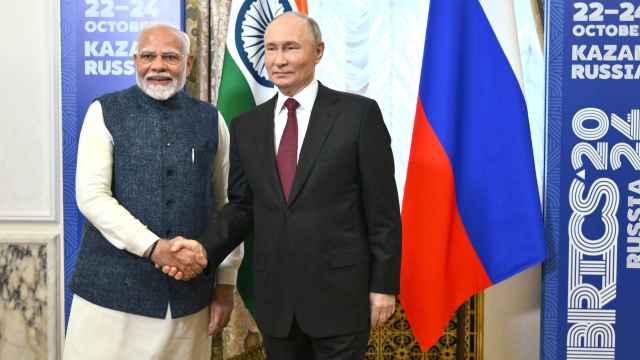
Leonid Kazinets
President
Barkli
The objective of any business operation is to maximize profit per transaction. If we view each transaction as an executive procedure, there are two options for achieving that objective: reduce the number of transactions or maximize the returns on each transaction. In view of human resources and time limitations, it makes sense to focus on actions and transactions that yield the maximum returns, in other words, to specialize on a certain area and strive for absolute efficiency.
The entire development business can be divided into three stages.
The first is land development: acquiring land, formalizing land rights, land-use zoning, sorting out ownership matters, buying land at auctions, etc. The second is project management: developing a business model for the project, cost control, design supervision, ergonomics, artistic design, commercial management of the project, marketing, leasing, debt repayment and maximizing profits. The third is Engineering, Production and Construction contract work, such as cost and schedule management.
Curiously enough, the sequence of the three stages is also the order of declining returns. The most money is made by the land developer &mdash the entity that prepares a property for future investment. Errors at these initial stages are critical, since, as a rule, they may lead to disastrous financial consequences, while EPC spending may only increase project costs and extend the project schedule. Specializing in all the three business areas at the same time can be challenging. From the economic standpoint, to boost transaction returns or capitalize on competencies at peak profit points, it makes sense to focus on specific areas, rather than build vertically integrated holding entities. Many operators on the Russian development market are vertically integrated holding entities. Few companies that are involved in production, designing and engineering, management, land development, construction, marketing and leasing simultaneously have been successful. One reason for that, in my opinion, is a lack of focus on a selected business area. Specialized customer and EPC entities, on the other hand, have proven much more viable.
In theory, from the economic standpoint, it may be efficient for an investment and finance company to outsource construction and even, possibly, project management. But that is theory only.
In line with the idea that outsourcing should boost returns, we have tried to outsource EPC services &mdash with deplorable results. Outsourcing may be fine on paper, but in real life, competent construction and engineering outsourcing contractors are few or non-existent. The real challenge confronting Russian business entities today is not to decide what to outsource, but to find a qualified and competent contractor to provide certain types of services.
As for some other services, such as IT support and the security of projects and construction sites, we firmly decided not to outsource those, although it does seem slightly strange that the CEO of a major holding company should monitor building maintenance personnel or site security guards. Outsourcing such functions, however, may lead to huge losses, and the real issue is that it is hard to find high-quality and reasonably-priced outsourcing services in Russia. Strategically, outsourcing certainly seems efficient, but finding a good outsourcing contractor is a challenge.
Deciding what to outsource and what not to outsource is not a matter of preference. The main driver is capitalization vs. the time required to maintain a certain level of personnel competence. The model is this: If personnel are sufficiently occupied and suited to their workload, and you rarely have to enhance their competence by using up more cash and resources, then you do not need outsourcing. However, if there is an area in your operations where many different skills are required and personnel have to be trained on a regular basis, where you need to purchase technology and equipment that will only be used every once in a while rather than on a regular basis &mdash then outsourcing is a must.
For example, in Western countries, most company employees do not use their own cars for business purposes. Instead, they hire taxis, which works well as a system since taxis use fast taxi lanes, and traveling by taxi takes a shorter time than driving one's own car. Besides, parking a car downtown is costly, so using taxis a few times a day is much cheaper than leaving one's own car parked for much of the day.
In Russia, the situation is quite different. Very few major companies decide not to provide their executives with company cars or parking spaces, and very few companies advise their employees to use taxis for business trips, even though having company cars parked in the backyard half the time, while paying for drivers, car depreciation and insurance, is poor economics. Using taxis is a much better deal: The service is available round the clock and costs less, even taking into account the taxi company's profit.
Considering outsourcing business services, however, one cannot disregard psychological factors such as comfort and quality. It is commonly believed that a product launched in a new market has to be 10 times as good as other similar products, just to beat the competition. In other words, a cell phone has to be 10 times more convenient than a fixed phone line or a public payphone. Flying a private jet is 10 times more convenient than using regular airline services with connections and transfers. Using in-house resources is 10 times more comfortable and convenient than outsourcing. That is the psychological aspect. Having in-house IT support is much safer than using skilled IT personnel from specialized third-party software and computer system companies.
So, the decision to outsource or not to outsource is driven by psychological comfort as much as by economics. In Russia, the quality of outsourcing services is still very low, due to a number of historical and other objective factors. And, although hiring a taxi is much more economical than riding in a company car for business, very few business executives in Russia today would be ready to use taxis instead of company cars.
A Message from The Moscow Times:
Dear readers,
We are facing unprecedented challenges. Russia's Prosecutor General's Office has designated The Moscow Times as an "undesirable" organization, criminalizing our work and putting our staff at risk of prosecution. This follows our earlier unjust labeling as a "foreign agent."
These actions are direct attempts to silence independent journalism in Russia. The authorities claim our work "discredits the decisions of the Russian leadership." We see things differently: we strive to provide accurate, unbiased reporting on Russia.
We, the journalists of The Moscow Times, refuse to be silenced. But to continue our work, we need your help.
Your support, no matter how small, makes a world of difference. If you can, please support us monthly starting from just $2. It's quick to set up, and every contribution makes a significant impact.
By supporting The Moscow Times, you're defending open, independent journalism in the face of repression. Thank you for standing with us.
Remind me later.





